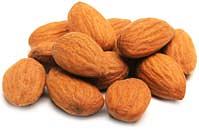Colorectal cancer is a disease that usually affects the over-50 crowd, but it’s never too early to eat a healthy diet to promote colon health.
Lifestyle factors
A healthy lifestyle is one of the keys to colorectal cancer prevention. By increasing the amount and intensity of exercise we get and modifying our diet, we can substantially reduce our risk of getting colorectal cancer. A study indicated that moderate (not drastic) lifestyle and dietary changes could possibly reduce the incidence of colorectal cancer in the US by as much as 70 percent.
Obesity/overweight
Our body mass index (BMI) is directly related to colorectal cancer risk. A meta-analysis revealed that, compared to those with a BMI under 23, colorectal cancer risk increases
- 14 percent for a BMI of 23 to 24.9
- 19 percent for a BMI of 25 to 27.4
- 24 percent for a BMI of 27.5 to 29.9, and a whopping
- 41 percent for a BMI over 30
Exercise
Not a fan of exercise? The good news is that researchers have found that even moderate levels of exercise – walking briskly for only 3 to 4 hours a week– can reduce colorectal cancer risk by 20 to 30 percent.
Cut out the red meat
A study of US male health professionals found that those who ate beef, pork, or lamb as a main dish more than five times a week had a three-fold increased risk of colon cancer, compared to men who ate these meats less than once a month. Processed meats (cold cuts, hotdogs, etc.) have also been associated with increased colorectal cancer risk.
- -- Replace red meat with fish, poultry, and plant sources of protein.
Lower the heat
Researchers suspect that the way meat is cooked may be the link between red meat and colorectal cancer. Colon cancer risk increases when meat is cooked at high temperatures for long periods of time.
- -- Don’t overcook meats; opt for rare cuts when you do indulge.
Bump up the fibre
There’s some evidence that highly refined carbohydrates may increase the risk of colorectal cancer.
- -- Replace white bread, rice, and refined cereals with unrefined whole grains, legumes, and fruits.
Do the D
Although the research is still out on some supplements, supplementing with calcium and vitamin D appears to possibly lower the risk of colorectal cancer.
- -- Take 1,000 to 2,000 IU of vitamin D a day.
Cancer screening
It’s one of the least favourite physical tests, but for those over 50, early detection of colorectal cancer can save lives. Polyps take 10 to 15 years to develop into cancer, so if they’re detected early and removed, cancer may be stopped before it develops.
If you have a family history of the disease, talk to your health care practitioner about possible early screening, screening more frequently, or genetic testing.
These healthy lifestyle changes will also reduce your risk of cardiovascular disease—a double bonus.














